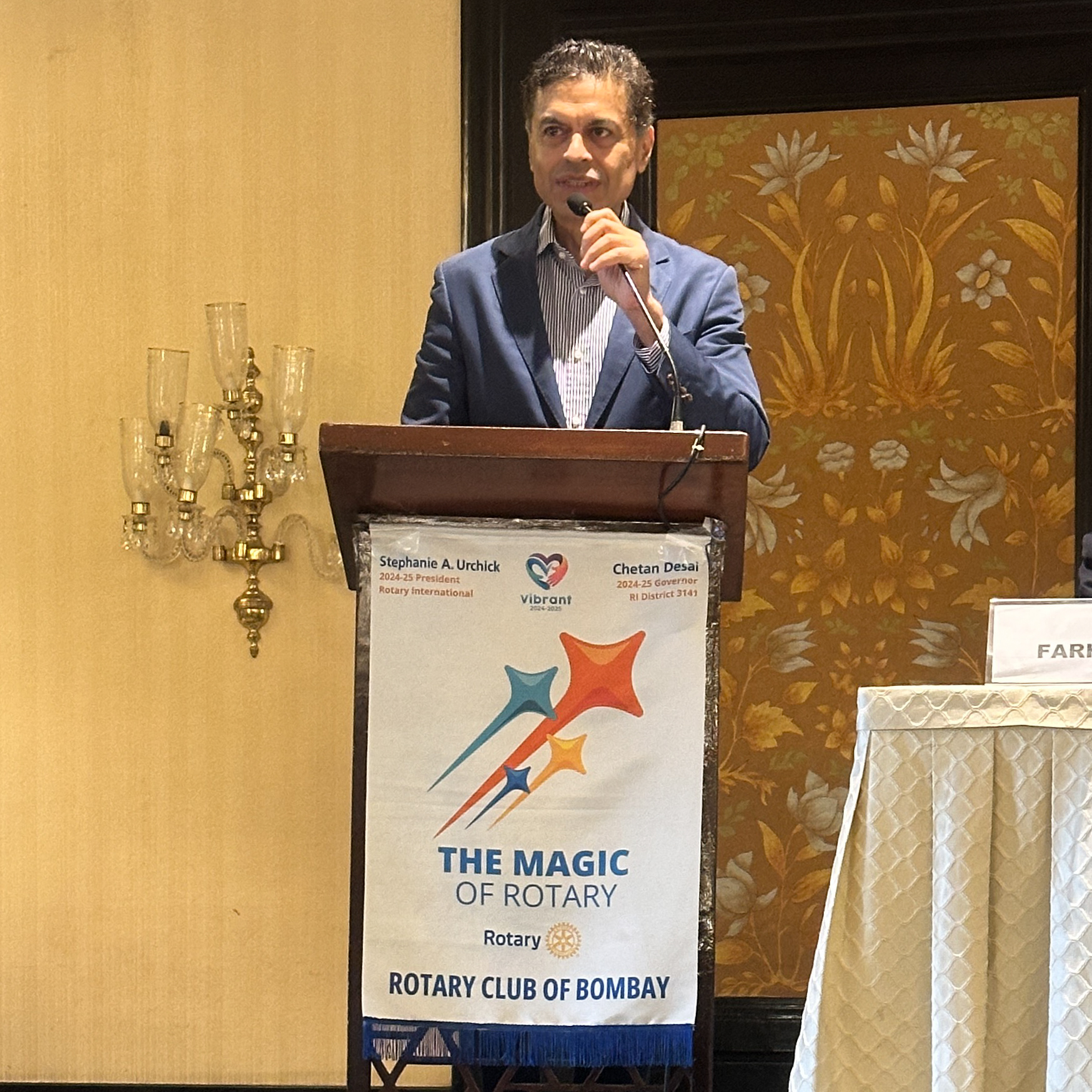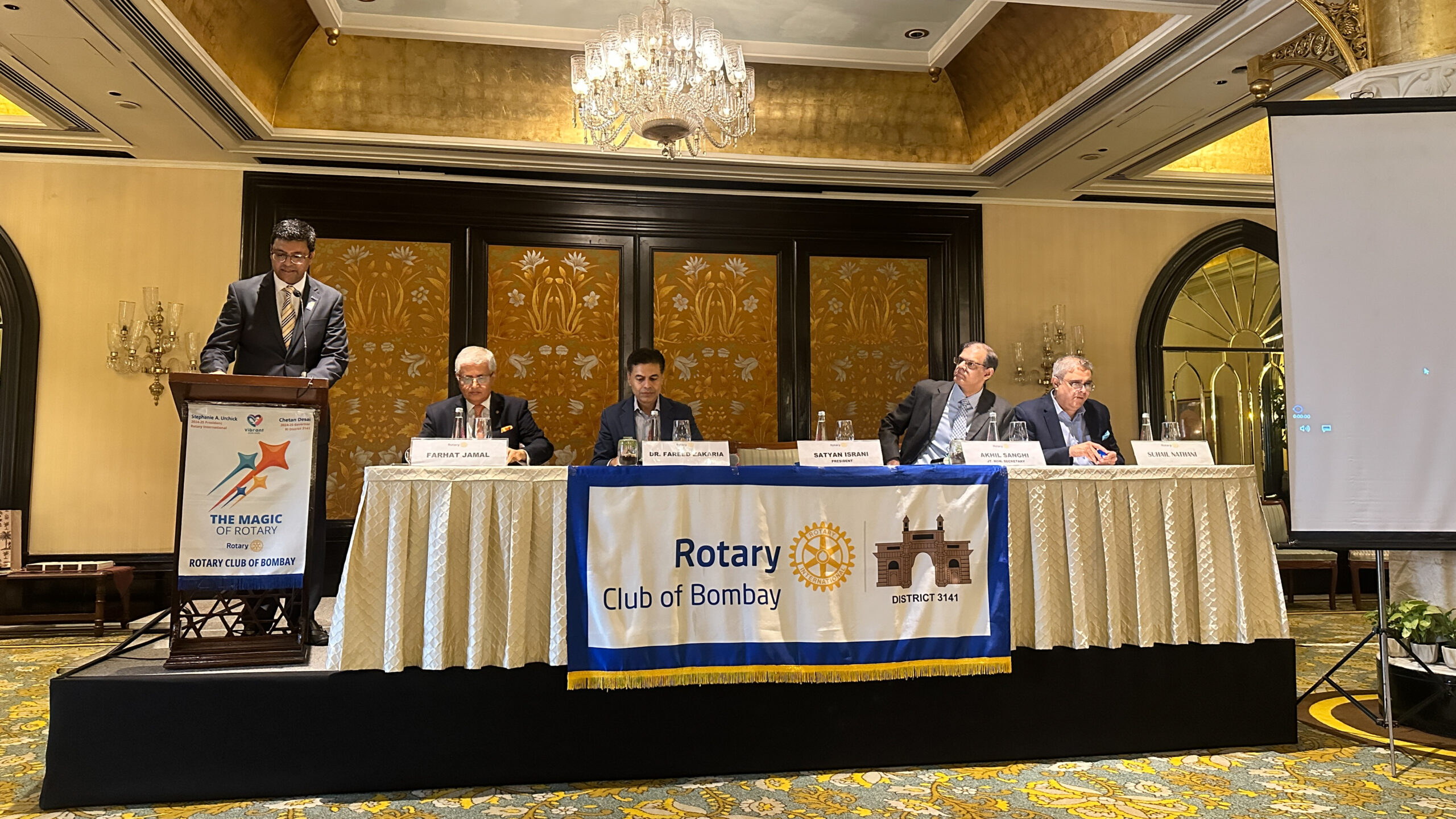Fareed Zakaria, an internationally acclaimed journalist, author, and host of CNN’s Fareed Zakaria GPS, is known for his incisive commentary on global politics, economics, and culture. With a Yale degree, a Harvard Ph.D., and bestselling books like The Post-American World, Zakaria’s voice has shaped global discourse for decades.
His recent talk at the Rotary Club of Bombay provided a profound exploration of the world’s shifting political and cultural dynamics. From America’s changing voter alignments to India’s developmental challenges, Zakaria’s insights painted a compelling picture of the forces shaping our times.
The Global Backlash Against Incumbents
Zakaria pointed to a significant trend in global democracies: the electoral defeat of incumbents. The “incumbency penalty,” amplified by post-COVID disruptions like inflation and supply chain crises, has swept across nations, from the UK to South Korea.
India, however, stood out. While Narendra Modi faced reduced parliamentary seats, he retained power due to his ability to balance his outsider image with governance competency. Zakaria’s analysis showcased how leaders’ ability to navigate public sentiment amid crises can define their political longevity.
The Shifting Political Landscape in the U.S.
The 2024 U.S. elections revealed a stark realignment of political bases. Historically, Democrats were the working class’ party, while Republicans attracted affluent professionals. Today, these roles have reversed.
Zakaria explained how socio-cultural factors, such as education and urbanization, now outweigh economic class in predicting voter behavior. This realignment underscores a broader global trend: traditional political divides are giving way to more complex, identity-driven alignments.
Cultural and Economic Upheavals Driving Populism
Over the last three decades, globalization and technological advancements have upended traditional societal norms. Zakaria described how these changes have disoriented communities, particularly in industrial heartlands, leading to populist movements.
Factories moving overseas, automation replacing jobs, and the gig economy have fragmented communities that once thrived on shared experiences. This cultural dislocation fuels nostalgia for a simpler past, a sentiment populist leaders adeptly exploit.
India’s Growth Requires Systemic Reforms
Zakaria critiqued India’s reliance on headline-grabbing deals with corporations like Tesla or Apple. While these attract attention, the real drivers of sustainable progress lie in education, workforce development, and open trade policies.
He emphasized the importance of lowering tariffs, investing in education, and skilling the workforce. Citing examples from global manufacturing hubs, Zakaria highlighted that India’s long-term growth depends on creating a level playing field for all businesses.
Media Bias and the Challenge of Nuanced Reporting
On media bias, Zakaria offered a balanced view. While individual journalists may reflect their sociocultural environments, organizations like The New York Times and CNN strive for balanced reporting.
He contrasted this with overtly political outlets like Fox News, emphasizing the importance of critical media consumption. Understanding biases helps readers navigate an increasingly polarized media landscape.
Reflections from the Rotary Club of Bombay
Attending this event offered me, Sampath Iyengar, new insights into modern success and personal branding. Orry’s journey may be unique, but the lessons he shared apply to anyone looking to redefine success on their terms. With discipline, authenticity, and a community like the Rotary, we can all carve out a path that’s true to who we are.

Fareed Zakaria’s talk was a masterclass in understanding the complexities of the modern world. His insights on global politics, cultural upheavals, and India’s developmental trajectory challenge us to think critically about the future.
In times of uncertainty, Zakaria’s words remind us of the power of informed dialogue and thoughtful action.

